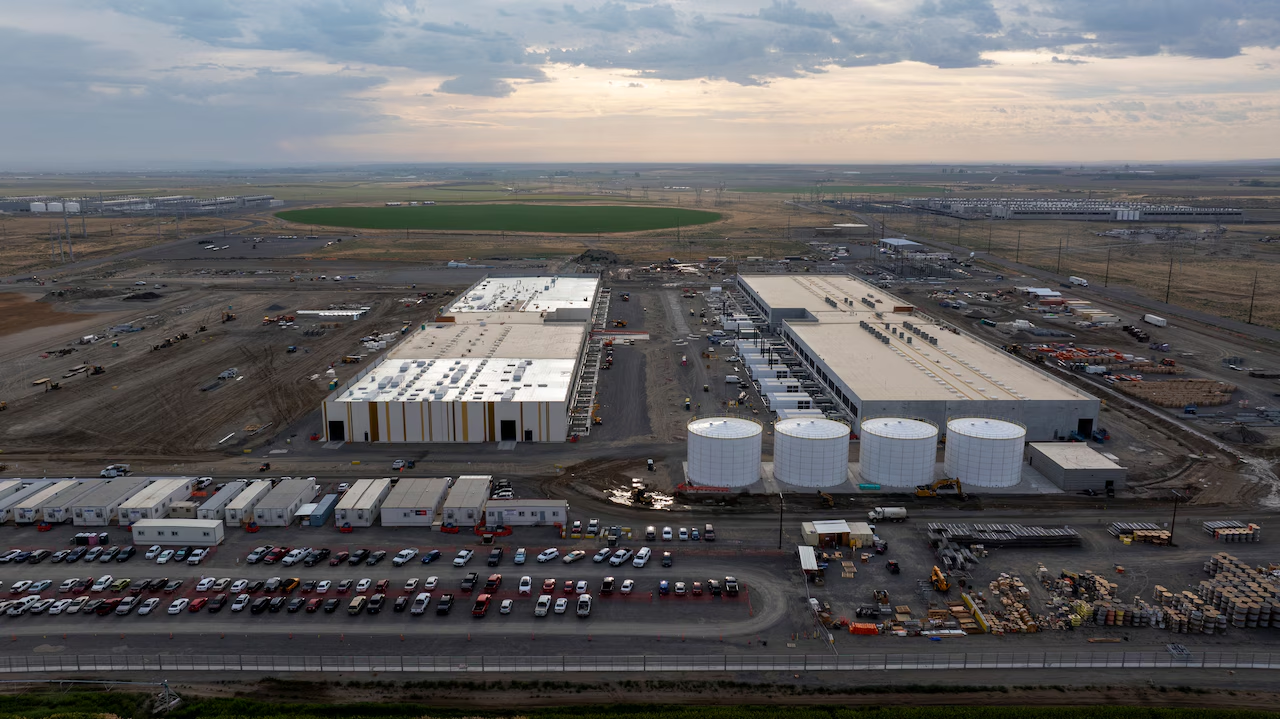PORTLAND, Ore. — The owners of an eastern Oregon telecom company at the center of a state lawsuit have now admitted they did not disclose their business ties with Amazon when seeking state approval to buy the company in 2018 — a reversal from their claims just two days earlier.
The disclosure could have major implications for the state’s case, which alleges the group of insiders acquired the company at a fraction of its true value by downplaying its lucrative relationship with one of the world’s largest corporations.
The Sale of Windwave Communications
The case involves Windwave Communications, a fiber-optic provider based in Morrow County. Originally owned by Inland Development Corp., a nonprofit formed two decades ago to provide internet service to local agencies and community organizations, Windwave grew into a profitable business serving both public and private customers.
Also Read
In 2018, Inland’s board approved the sale of Windwave to five insiders — all of them current or former board members of Inland. The group paid $2.6 million for Windwave, a figure the Oregon Department of Justice (DOJ) says was far below the company’s actual value given its contract work with Amazon’s expanding data center operations in the region.
Civil Charges Filed
In July 2025, the DOJ filed civil charges accusing the buyers of misleading the state’s Charitable Activities Division during the sale process. Specifically, the DOJ alleges the defendants withheld the fact that Amazon was Windwave’s primary customer, a relationship that substantially boosted the company’s long-term value.
By omitting that information, the state argues, the buyers misrepresented Windwave’s worth, enabling them to acquire it for less than one-third of its fair market value.
A Shifting Defense
Earlier this week, the defendants sought to have the charges dismissed, claiming that a two-year statute of limitations had expired. They also argued that they had in fact disclosed Amazon’s importance to Windwave’s business when seeking state approval.
“The state was fully aware that Amazon was a key component in Windwave’s financial outlook,” they wrote in their motion Monday. They asserted that state regulators knew Windwave’s business would likely expand significantly as Amazon grew its eastern Oregon data center footprint.
But by Wednesday, after questions from The Oregonian/OregonLive, the defendants quietly amended their filing. They acknowledged that in the documents submitted to the state in 2018, they had redacted the name of Windwave’s top customer.
“In the copy provided to the state, the name of the #1 customer was redacted ‘to comply with terms of nondisclosure agreement,’” the revised motion stated.
Explanation Raises Questions
Attorneys for the defendants offered little explanation for the abrupt change. Patrick Gregg, a lawyer representing Windwave, wrote in an email that they had submitted the “wrong version” of an unspecified document. He did not elaborate on how the error occurred or what impact it might have on the case.
The admission undercuts their earlier argument that Amazon’s identity as Windwave’s largest customer was openly disclosed. Instead, the state contends, the omission deprived regulators of critical information that should have influenced their decision to approve the deal.
Competing Narratives of Value
The dispute ultimately hinges on how much Windwave was worth at the time of its sale.
The buyers submitted a valuation report to state authorities in 2018 that portrayed the business as risky, predicting “tempered growth” going forward. A Portland-based consulting firm hired by the buyers projected just 2% long-term growth for Windwave.
In reality, Windwave experienced what state officials described as “a long-term period of unprecedented growth” in the years after the sale, fueled largely by Amazon’s demand for fiber-optic infrastructure to support its sprawling data centers.
State attorneys argue that the defendants knew this growth was likely but concealed it to secure a bargain price.
Inland’s Origins and Board Ties
The controversy is further complicated by Inland’s history and governance. Inland Development Corp. was established 21 years ago to provide affordable internet to public entities in Morrow County, about 160 miles east of Portland. Windwave, created as a for-profit arm, expanded beyond public agencies to serve private companies.
By 2017, several Inland board members had close ties to Windwave’s leadership. Four of them — all defendants in the case — were current or former public officials in Morrow County. Windwave’s CEO was also a board member.
As the sale process began, three board members resigned. Inland then appointed three replacements, giving the board enough independent directors to formally approve the sale.
Even so, the DOJ contends the insider nature of the deal, coupled with the alleged concealment of Amazon’s significance, makes it improper under Oregon nonprofit law.
Defendants Argue State Should Have Known
Despite their admission of redacting Amazon’s name, the defendants maintain the state should have been aware of the company’s importance. They point to widespread media coverage of Amazon’s data center investments in eastern Oregon as evidence that regulators “should have anticipated” Windwave’s growth potential.
“There is no doubt that the state knew or should have known around the time it approved the transaction that Amazon’s expansion in northeastern Oregon could mean increased profits to Windwave,” they wrote in their revised motion.
That argument, however, clashes with their own valuation report submitted during the approval process, which downplayed future growth and suggested significant financial risks.
Broad Legal Implications
The case highlights the tension between nonprofit oversight and the growing economic power of data centers in rural Oregon. Amazon, which has invested billions into server farms in Morrow and Umatilla counties, relies heavily on local infrastructure providers like Windwave.
Critics say the sale of Windwave illustrates how insiders can benefit from valuable nonprofit assets while regulators lack the tools or information to intervene. Supporters of the defendants argue the state is applying hindsight to a transaction that was properly vetted at the time.
What Comes Next
All eight current and former Inland board members, along with Windwave and Inland itself, remain defendants in the civil case. The court has not yet ruled on their motion to dismiss.
If the case proceeds, it could set a precedent for how Oregon scrutinizes insider transactions involving nonprofits and for-profit spinoffs. It may also influence how regulators oversee companies linked to large corporate customers like Amazon, which has a history of negotiating nondisclosure agreements that limit transparency.
For now, the state maintains that the 2018 sale deprived the public of millions of dollars in value. The defendants insist the transaction was lawful and transparent — even as their own filings suggest otherwise.












